Cialis
Cialis is a prescription-only erectile dysfunction medication that contains the active ingredient tadalafil.
(4)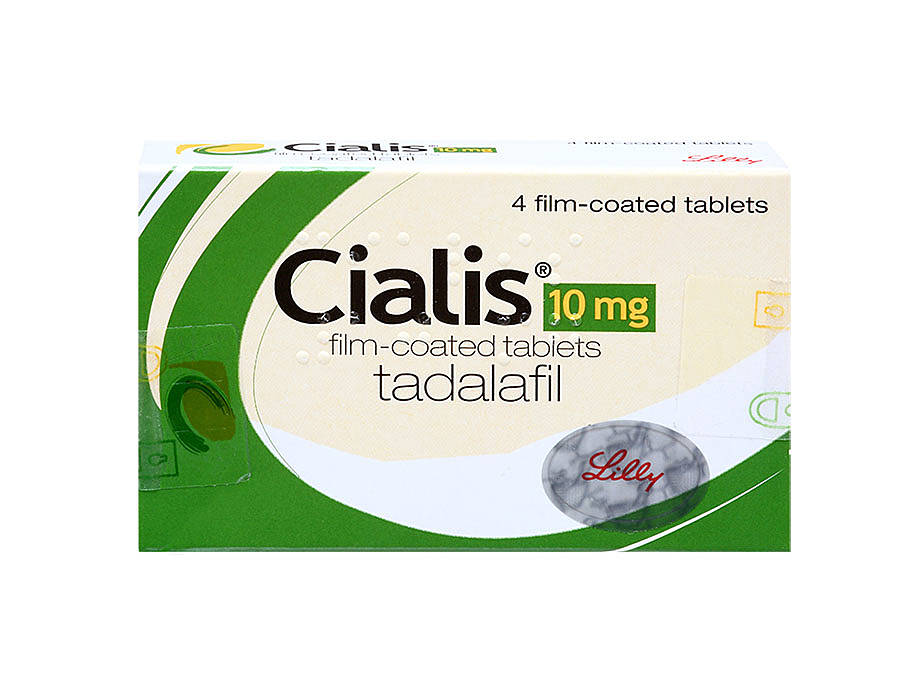

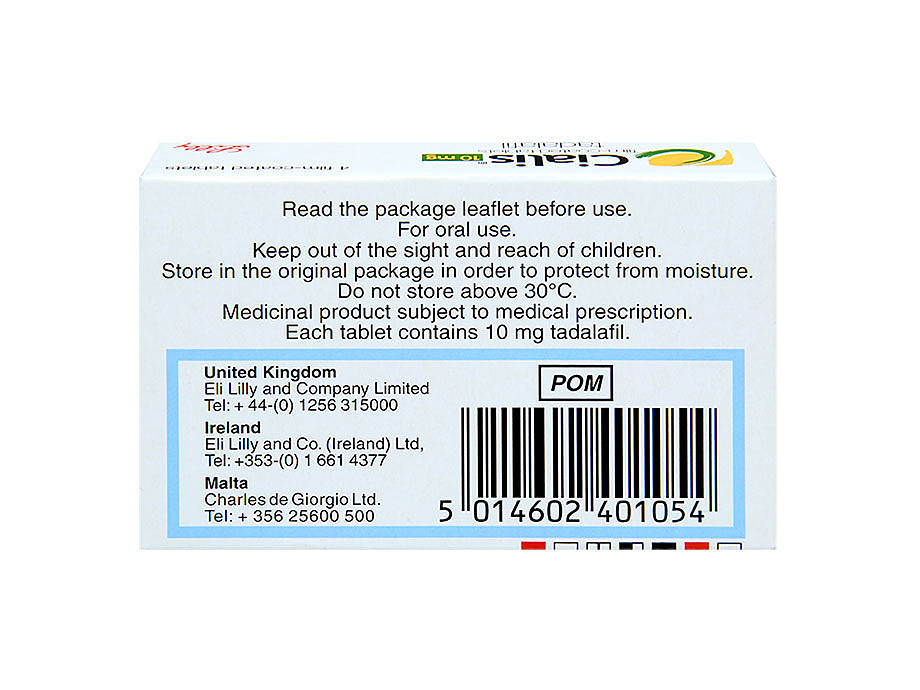


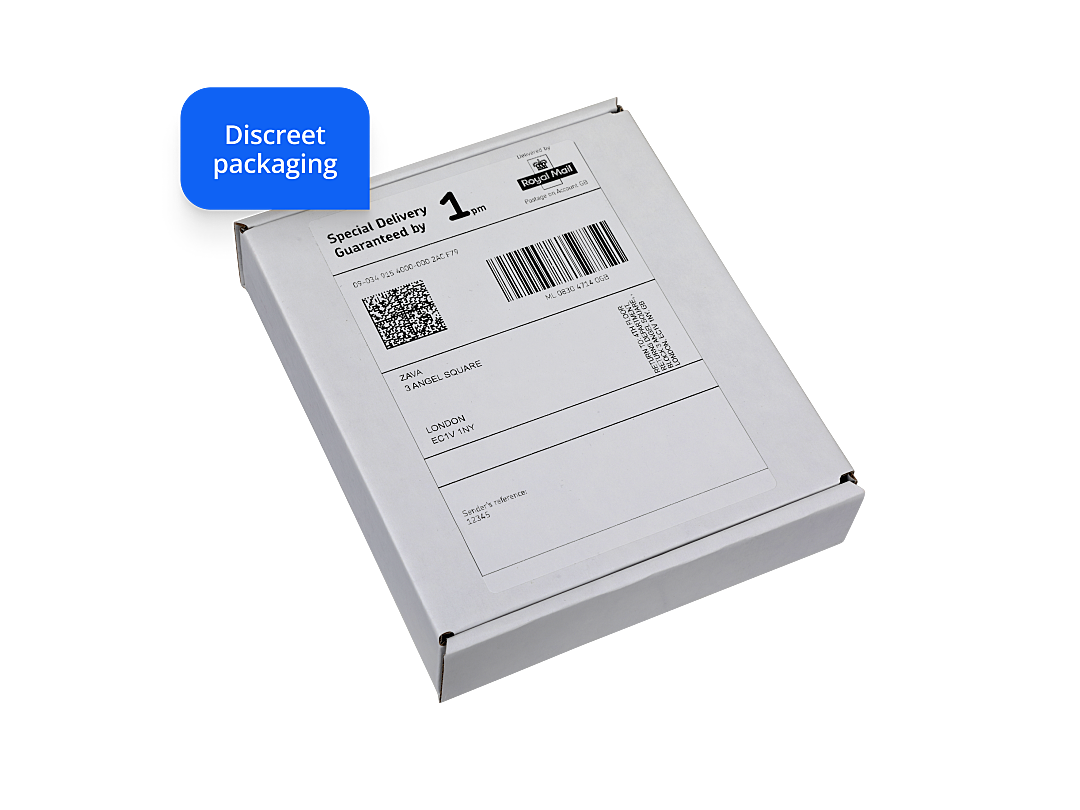

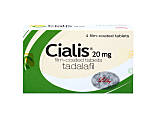


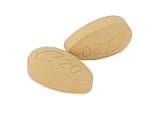

Prices from £45.99
In stock. Simply fill in a brief consultation questionnaire and one of our doctors will review your request today.
Erectile dysfunction pills that work as well as Cialis
-
Cialis is a safe and effective medication used to treat erectile dysfunction. Cialis gets to work within 30 to 60 minutes after taking 1 tablet and its effects can last up to 36 hours.
Cialis is the brand name for tadalafil and is available in 2 strengths, as 10mg or 20mg tablets.
Cialis is manufactured by Eli Lilly and Company Limited.
Prices
4 tablet(s) - £45.99
8 tablet(s) - £81.99
12 tablet(s) - £117.99
16 tablet(s) - £152.99
4 tablet(s) - £45.99
8 tablet(s) - £88.00
12 tablet(s) - £119.99
16 tablet(s) - £149.00



About Cialis
-
-
Cialis is a medication you can take to help you get and keep an erection. It contains the active ingredient tadalafil, which belongs to a group of medicines called phosphodiesterase type-5 (PDE5) inhibitors.
PDE5 inhibitors work by increasing blood flow to the penis when you’re aroused, allowing you to sustain an erection. This makes Cialis an effective treatment for erectile dysfunction (ED), when you find it difficult to get a natural erection.
-
-
The main difference between Cialis and Viagra lies in the time frame during which they are effective.
Cialis works for a period of up to 36 hours. This means, that if you are sexualy stimulated within this period of time, Cialis will help you get an erection. It is often referred to as a “weekend pill”, as it allows you to have spontaneous sex several times during the specified window of time.
Viagra is effective for up to four hours and therefore requires that you plan ahead.
Both Viagra and Cialis take 30 to 60 minutes to work, so you should take the tablet at least half an hour before intercourse.
-
-
You should take Cialis as your doctor has directed you to do so. For most people, the starting dose of Cialis is one 10mg tablet before sex, a maximum of once per day.
To take Cialis:
- take 1 Cialis tablet at least 30 minutes before you plan to have sex
- swallow the tablet whole with water
You can take Cialis with or without food but you should avoid grapefruit juice or fresh grapefruits. Grapefruit can change the effectiveness of Cialis by interfering with how your body breaks it down to clear it from your system.
Try to limit your alcohol intake on the days you take Cialis, as it can make it difficult for you to maintain an erection.
Can I take Cialis every day?
You should not take Cialis tablets every day. Cialis stays in your body for around 36 hours. This means you’ll still benefit from its effects a day and a half after you have taken the tablet. Therefore, Cialis is a good option if you want to have sex frequently throughout the week.
If you prefer to take a daily tablet that does not interrupt when you have sex, you can request Cialis Daily. Cialis Daily is available as a 2.5mg and 5mg tablet and does not need to be taken before sexual activity. You take 1 Cialis Daily tablet every day without taking a break.
-
-
Cialis works by getting more blood to flow into the penis, so you can get an erection when you’re sexually aroused.
When you are sexually stimulated, your nerves release a chemical to make your blood vessels get wider. This allows blood to rush into your penis and cause an erection. Cialis helps keep this chemical in your blood so you can maintain an erection.
As this chemical is only released during sexual activity, you will only get an erection with Cialis when you feel like having sex.
-
-
Cialis is most effective when taken 30 minutes before you want to have sex and if you are sexually aroused.
The effects of Cialis will remain for around 36 hours, which means you can take fewer tablets throughout the week. This is suitable if you have frequent sex and do not want to take a tablet every time you have sex.
-
-
Cialis tablets come in 2.5mg, 5mg, 10mg and 20mg doses. The dose of your Cialis tablets tells you how much of the medicine are in them. As a rule: the higher the dose, the stronger the medication.
10mg or 20mg Cialis tablets are to be taken as and when you need them. Take your tablet about 30 to 60 minutes before you are going to have sex.
If you’re expecting to have regular sex, your doctor might recommend that you take Cialis daily 5mg tablets. 5mg doses of Cialis are suitable for taking everyday.
-
-
You may have a few or no side effects when taking Cialis. Some side effects of Cialis are more common than others. If a side effect is listed below, it does not mean you will definitely get it when you take Cialis.
Some common side effects of Cialis include:
- headache
- muscle aches
- back pain
- facial flushing
- nasal congestion
- indigestion
Uncommon side effects happen less often. These side effects will usually disappear after a few hours.
Uncommon side effects of Cialis include:
- dizziness
- feeling sick or being sick
- reflux
- blood in urine
- prolonged erections
- feeling your heartbeat
- a fast or irregular heartbeat
- changes to your blood pressure
- nosebleeds
- tiredness
If you get any side effects that do not go away after a few hours, speak to your doctor. They may suggest changing to an alternative ED medication.
You should stop taking Cialis and contact 999 right away if you have:
- an allergic reaction or a rash
- chest pain
- priapism (a prolonged erection that lasts for more than 4 hours)
- sudden loss of vision
If you get chest pain after taking Cialis, do not take medication that contains nitrates to relieve the pain. This includes glyceryl trinitrate spray or nitrate tablets.
For more details on the side effects of Cialis, read the patient information leaflet that is inside your pack.
-
-
You can take Cialis if you are a man over the age of 18 and struggle to get an erection when having sex.
You should not take Cialis if you:
- are a woman
- are under 18 years old
- are allergic to tadalafil or any other ingredients in Cialis
- are taking medicines that contain nitrates, such as nitroglycerin or isosorbide mononitrate
- are taking products that contain amyl nitrite (also called ‘poppers’)
- have a history of blood clots
- have blood pressure problems
- have a personal or family history of visual problems
- are taking riociguat, which is used to treat pulmonary arterial hypertension
Speak to your doctor if you have:
- sickle cell anaemia
- multiple myeloma
- heart problems
- leukaemia
- any penis deformation, including Peyronie’s disease
- liver or kidney problems
- lactose intolerance
Your doctor will be able to advise whether Cialis is suitable for you to use.
For further information and guidance please read the Cialis patient information leaflet.
-
-
Every Cialis tablet contains the active ingredient tadalafil. Depending on the dosage, each pill may contain 10 or 20mg of tadalafil, as well as the additional non-active ingredients lactose monohydrate, magnesium stearate, triacetin, iron oxide yellow (E172), croscarmellose sodium, hydroxypropylcellulose, microcrystalline cellulose, sodium laurilsulfate, titanium dioxide (E171), talc and hypromellose.
-
-
You should not take Cialis if you:
- are a woman
- are under 18 years old
- are allergic to tadalafil or any other ingredients in Cialis
- are taking medicines that contain nitrates, such as nitroglycerin or isosorbide mononitrate
- are taking products that contain amyl nitrite (also called ‘poppers’)
- have a history of blood clots
- have blood pressure problems
- have a personal or family history of visual problems
- are taking riociguat, which is used to treat pulmonary arterial hypertension
Speak to your doctor if you have:
- sickle cell anaemia
- multiple myeloma
- heart problems
- leukaemia
- any penis deformation, including Peyronie’s disease
- liver or kidney problems
- lactose intolerance
Your doctor will be able to advise whether Cialis is suitable for you to use.
For further information and guidance please read the Cialis patient information leaflet.
-
-
Cialis can interact with other medications that you might be taking.
Speak to your doctor or pharmacist if you are taking:
- riociguat, used to treat pulmonary arterial hypertension
- alpha-blockers, including doxazosin
- high blood pressure treatment
- 5-alpha reductase inhibitors, used to treat benign prostatic hyperplasia, such as finasteride
- antifungal medication, such as ketoconazole and itraconazole
- protease inhibitors, like ritonavir used in HIV treatment
- epilepsy medication, including carbamazepine, phenytoin or phenobarbital
- antibiotics, including rifampicin, erythromycin and clarithromycin
- other erectile dysfunction treatments, such as alprostadil
If you take any of the above medications, your doctor can suggest the best Cialis dose that is most suitable for you or an alternative ED treatment.
-
-
If you want to try a different ED medication to Cialis, your options include:
- Viagra (also known as sildenafil)
- Levitra
- Spedra
These medications work in a similar way to Cialis.
While it is beneficial to use medication to treat erectile dysfunction, it is more helpful to find out the cause of your ED. Sometimes ED can occur due to side effects of other medications, such as antidepressants, or due to emotional stress. Psychotherapy can help you to understand if you have any emotional barriers that may be stopping you from getting an erection.
Your doctor will be able to help you find out if there are any underlying health conditions that may be causing your erectile dysfunction.
-
-
What is the difference between Cialis and Viagra?
The difference between Cialis and Viagra is how quickly it works, how long it lasts, and the active ingredient. Cialis contains the active ingredient tadalafil, and Viagra contains the active ingredient sildenafil. Cialis takes around 30 minutes to work and can last for up to 36 hours. Viagra takes between 30 and 60 minutes to work and lasts around 4 hours.
The dosage for each medication is also different, but this doesn’t mean one is stronger than the other. Viagra comes in 25mg, 50mg, and 100mg tablets, whilst Cialis comes in 10mg or 20mg tablets. You can also get Cialis Daily, which is a 2.5mg or 5mg tablet you take once a day.
Cialis and Viagra both belong to a group of medications called phosphodiesterase type 5 (PDE5) inhibitors. These medications relax your blood vessels and allow easier blood flow to your penis, making it easier to get and maintain an erection without losing it during sex. This makes them both effective treatments for erectile dysfunction (ED).
Is Cialis better than Viagra?
Both Cialis and Viagra are just as effective as each other, and choosing between them depends on which is best for you or best matches your needs. There is no ‘better’ treatment as they both have different benefits depending on the person and their needs.
For example, if you need a longer-lasting treatment, Cialis may be the better treatment for you as it lasts for up to 36 hours. If you need a treatment that’s available over the counter, Viagra Connect might be better for you. What’s important is learning the differences and finding what’s best for you.
There is a large range of ED treatments available at ZAVA. You may find that one treatment works better than another for your ED symptoms.
Can you take Cialis on an empty stomach?
Yes, you can take Cialis with or without food, but what you eat and when you eat can affect how quickly it works. Eating a meal that’s high in fat right before taking your medication can make it take longer to start working.
A few uncommon side effects of Cialis are stomach ache, nausea (feeling sick), or vomiting (being sick). If you get any of these side effects, try eating a small meal before taking Cialis.
Can Cialis lower my blood pressure?
An uncommon side effect of Cialis is low blood pressure. As Cialis works to relax your blood vessels, this could slightly lower your blood pressure temporarily, but this is unlikely to cause any health issues. If you get side effects such as dizziness, blurred vision, heart palpitations, or confusion, this may be a sign of low blood pressure, and you should speak to your doctor straight away if you get these symptoms.
You should not take Cialis if you have been diagnosed with low blood pressure already, as this could cause your blood pressure to drop dangerously low.
Can Cialis cause a heart attack?
A rare side effect of Cialis is a heart attack. Most men who have experienced a heart attack whilst taking Cialis had heart problems before taking the medication. Your doctor will make sure Cialis is a safe and suitable treatment before prescribing it to you.
Always follow your doctor's instructions when taking Cialis, and never take more than your prescribed dose. This could increase the risk of dangerous side effects, especially in men who have heart problems.
What makes Cialis work better?
To get the most out of Cialis, you should try:
- taking it at the right time (around 30 minutes before sex)
- being sexually aroused, you may need to participate in foreplay first
- avoiding alcohol, as this can make it harder to get and maintain an erection
- avoiding heavy, greasy, and fatty meals before taking Cialis, as this can delay its effects
- not putting too much pressure on yourself, as this can make it harder to maintain an erection
If Cialis isn’t working for you, speak to your doctor. You may need a higher dose, or they may suggest trying another ED medication.
How often can you take Cialis?
You should not take Cialis more than once a day (24 hours). Cialis can last for up to 36 hours, so you may be able to have sex again the next day without needing another tablet.
Does Cialis work the first time you take it?
Cialis can work the first time you take it, but this isn’t always the case for everyone who tries it. This is because it can take some time for your body to get used to the medication. Due to this, your body will recommend trying Cialis on 8 different occasions before trying a different dose or an alternative treatment.
What if Cialis doesn’t work for me?
If Cialis doesn’t work for you, try again the next day or the next time you plan to have sex. If you have tried Cialis on more than 8 different occasions and it’s still not working for you, speak to your doctor. They may want to change your dose or recommend a different treatment.
Never take more Cialis than prescribed because this will not make it work better and may cause side effects. Make sure you follow the instructions on the patient information leaflet, take Cialis at the right time, and are sexually aroused.
Does Cialis keep you awake?
No, there are no side effects of Cialis that should stop you from sleeping or cause drowsiness.
Can Cialis cause depression?
No evidence shows that Cialis causes depression or low mood. If you think you have depression or a low mood, you should speak to your doctor.
Is Cialis the same as tadalafil?
Yes, Cialis is the branded version of tadalafil, which is the active ingredient in both medications. Both of these medications work in exactly the same way, therefore, Cialis has the same side effects as tadalafil. The only differences between them are the packaging, cost and how the pills look.
Why is Cialis called the ‘weekend pill’?
Cialis is called the weekend pill because its effects can last for most of the weekend (up to 36 hours). This means if you take Cialis on Saturday afternoon, it should last the rest of the weekend.
Can I get Cialis on the NHS?
Yes, Cialis can be prescribed on the NHS. You will need to make an appointment to see your GP beforehand to get your prescription. They will ask you a few questions and may carry out some tests to make sure you have no underlying health conditions that could be causing your symptoms.
Can you get Cialis without a prescription?
No, Cialis is only available with a prescription. It can be dangerous to take Cialis if you have not been prescribed it.
There is only one ED medication available without a prescription, which is Viagra Connect. This contains 50mg of the active ingredient sildenafil and can be found over the counter.

Dr Babak Ashrafi Clinical Lead for Service Expansion
Accreditations: BSc, MBBS, MRCGP (2008)
Babak studied medicine at King’s College London and graduated in 2003, having also gained a bachelor’s degree in Physiology during his time there. He completed his general practice (GP) training in East London, where he worked for a number of years as a partner at a large inner-city GP practice. He completed the Royal College of GPs membership exam in 2007.
Meet our doctorsLast reviewed: 25 Nov 2022
-
Cialis, Summary of Product Characteristics, EMC [accessed October 2022]
-
Erectile dysfunction, NICE/British National Formulary [accessed October 2022]
-
Cialis, Patient Information Leaflet, EMC [accessed October 2022]
-
Tadalafil 20 mg film-coated tablets, Patient Information Leaflet [accessed October 2022]
-
Tadalafil, National Health Service [accessed October 2022]




